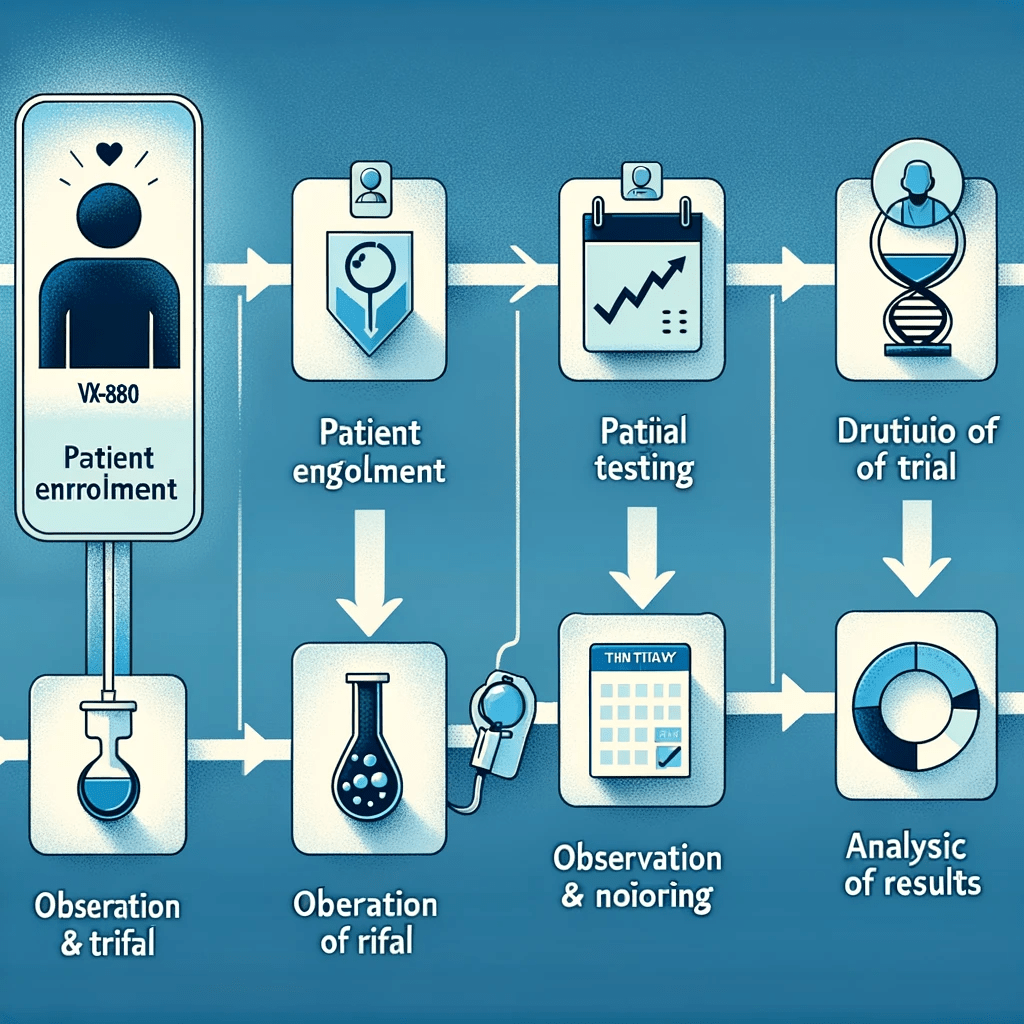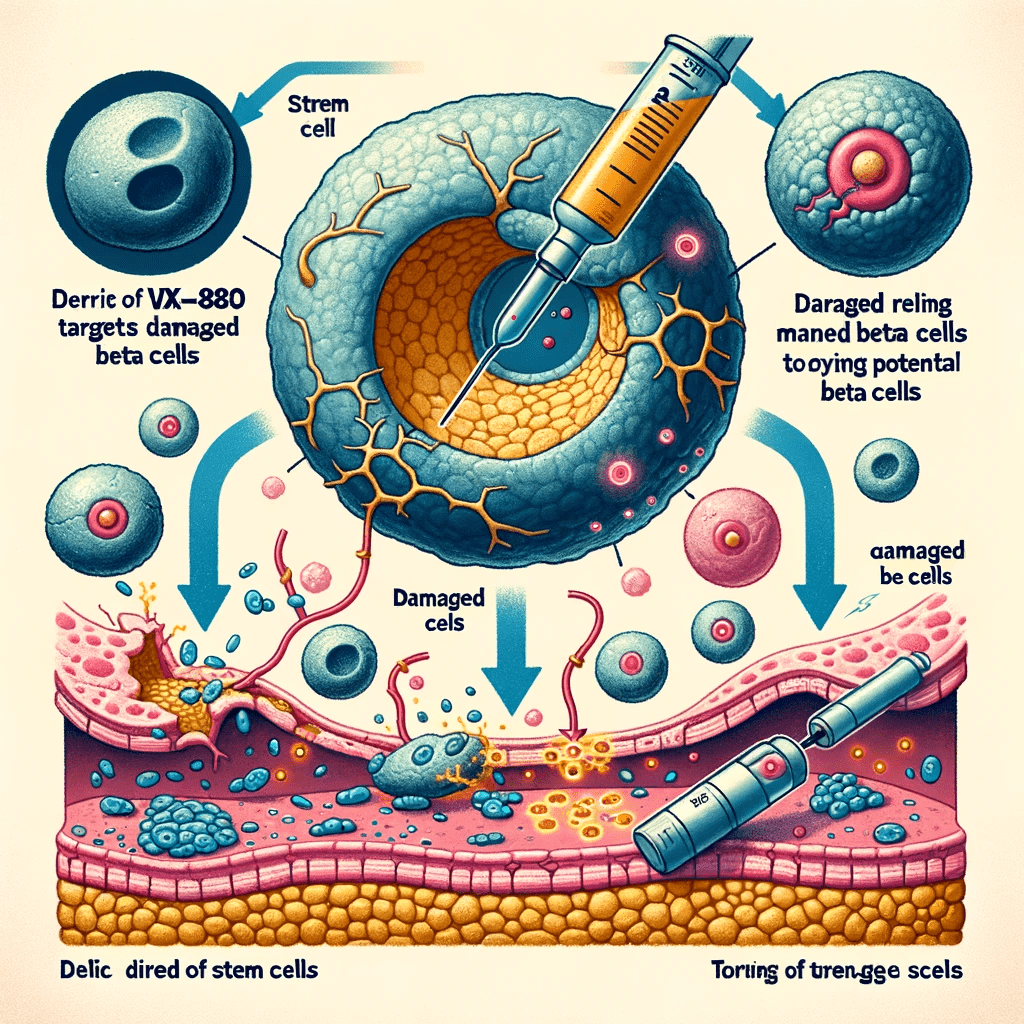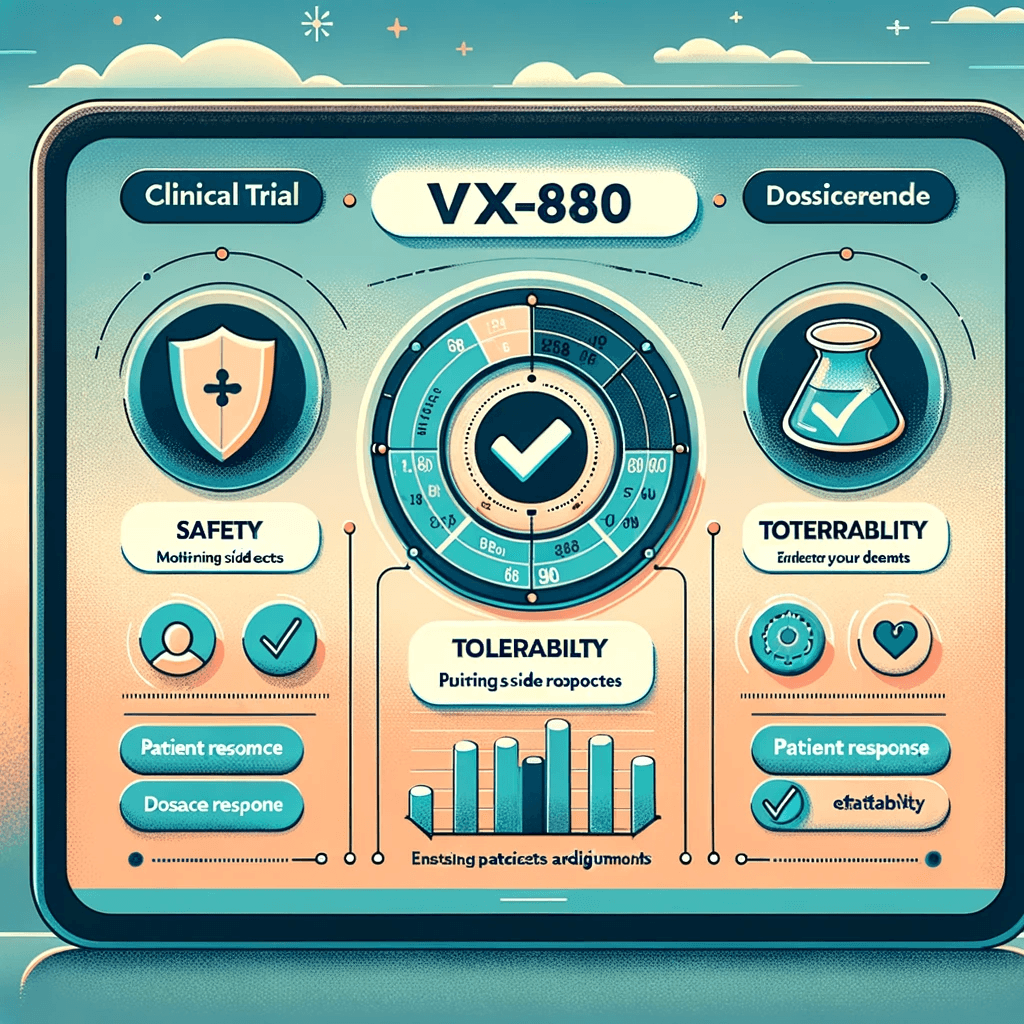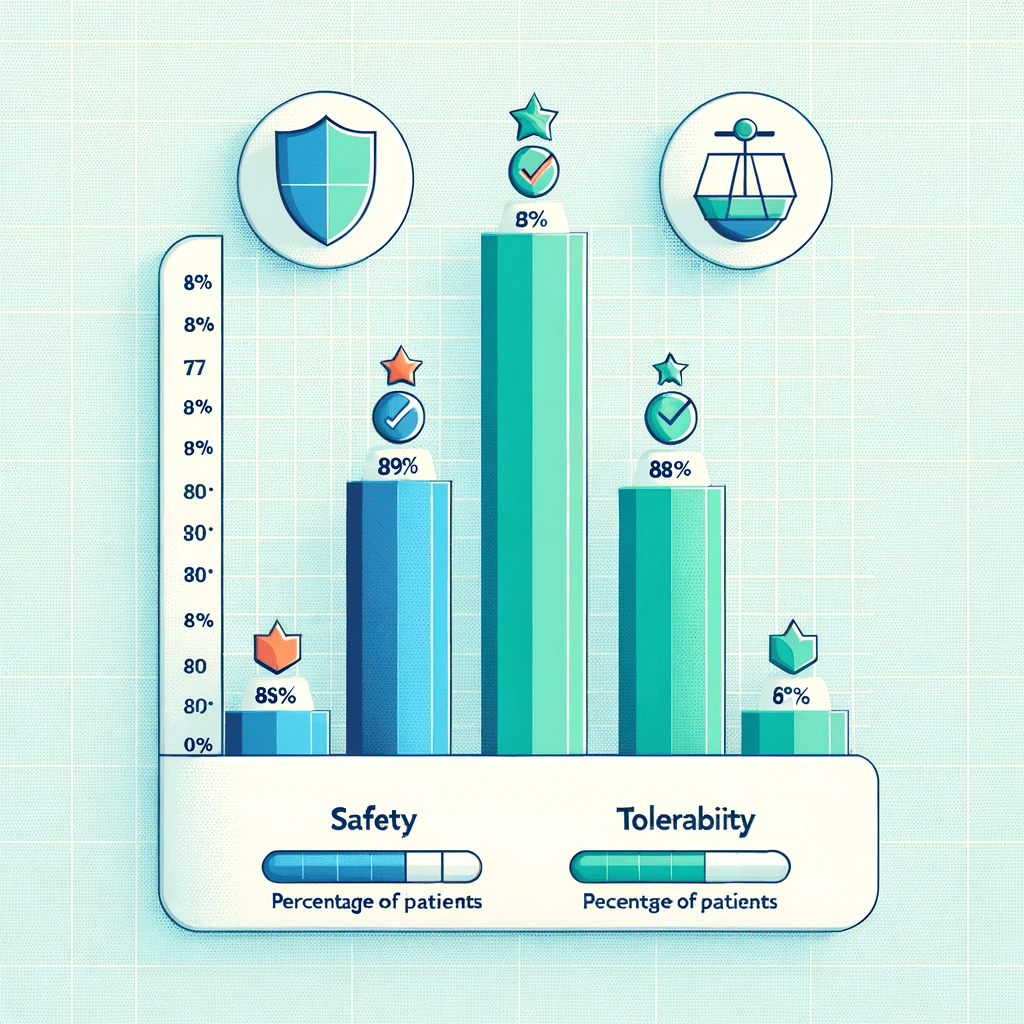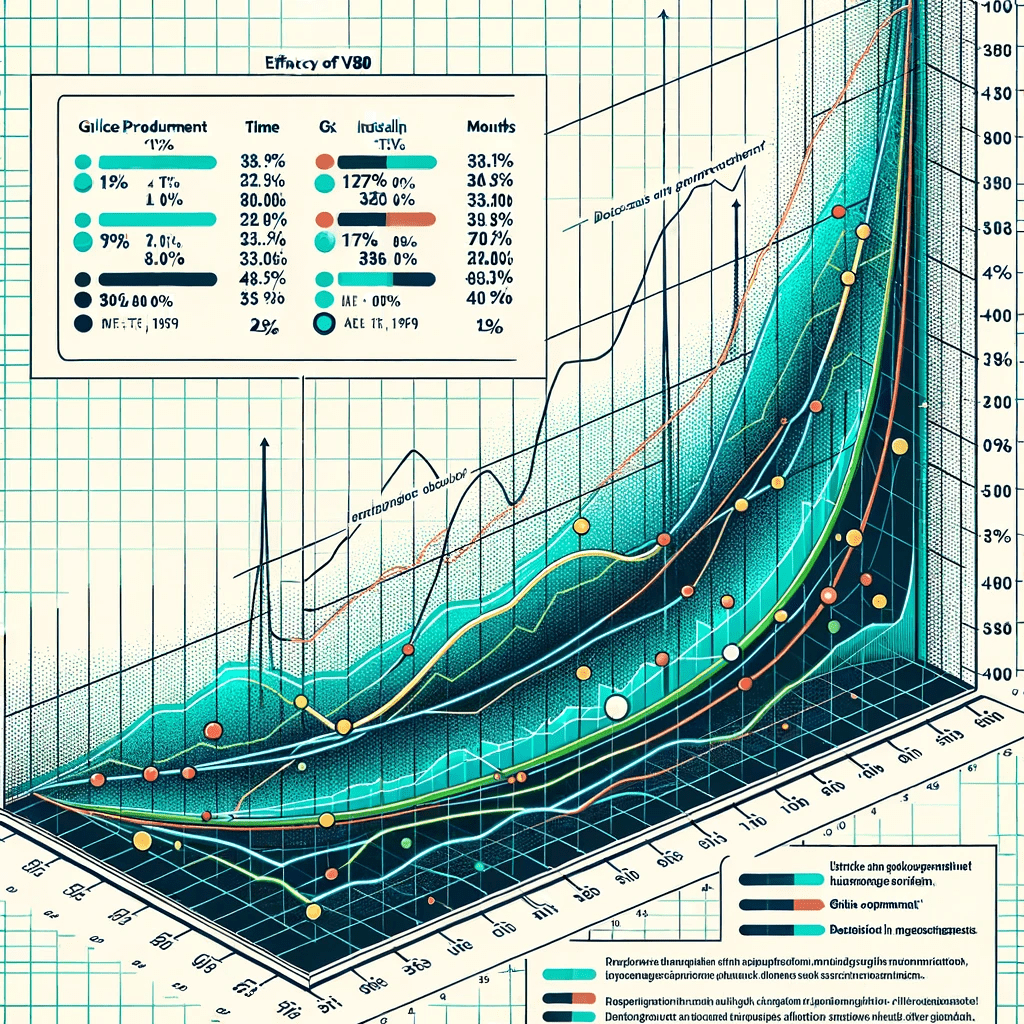
The VX-880 clinical trial for type 1 diabetes treatment has shown promising results. This trial evaluated the safety, tolerability, and efficacy of VX-880, a differentiated stem cell therapy. Patients treated with VX-880 demonstrated grafting of islet cells, glucose-responsive insulin production, and improved glycemic control. We observed significant reductions in hemoglobin A1c levels and a decreased reliance on external insulin. Additionally, some patients achieved insulin independence. These findings highlight the potential of VX-880 in addressing the unmet needs of individuals with type 1 diabetes. The article sections provided discuss further details on the trial.
Overview of VX-880 Clinical Trial
The VX-880 clinical trial presents a promising approach in the field of diabetes treatment, specifically for type 1 diabetes. This section provides a comprehensive overview of the trial, including the introduction to VX-880 and its potential therapeutic benefits, the purpose and objectives of the clinical trial, details on patients enrolled and the study design, as well as the importance of VX-880 in addressing unmet needs in type 1 diabetes.
Introduction to VX-880 and its Potential for Diabetes Treatment
VX-880 is a novel therapy derived from fully differentiated stem cells, designed to target type 1 diabetes. It holds the potential to revolutionize diabetes management by addressing the underlying cause of the disease, rather than merely managing symptoms. VX-880 aims to restore insulin production and improve glucose control, offering hope for a more effective and long-term treatment option.
Purpose and Objectives of the Clinical Trial
The clinical trial aims to evaluate the safety, tolerability, and efficacy of VX-880 in individuals with type 1 diabetes who experience severe hypoglycemia. By assessing various parameters such as adverse events, hemoglobin A1c levels, and insulin dependence, the trial seeks to determine the potential benefits and limitations of VX-880 as a treatment modality.
Patients Enrolled and Study Design
The trial includes a group of carefully selected participants diagnosed with type 1 diabetes. These individuals will undergo treatment with VX-880 and closely monitored for specific outcomes. The study is designed to be non-blinded, allowing participants and healthcare professionals to be aware of the treatment received, ensuring transparency throughout the trial.
Importance of VX-880 in Addressing Unmet Needs in Type 1 Diabetes
Type 1 diabetes management poses significant challenges due to the risk of severe hypoglycemia, glucose control fluctuations, and the lifelong reliance on exogenous insulin. VX-880 holds immense importance in addressing these unmet needs by potentially offering a therapy that restores natural insulin production, improves glycemic control, and reduces the dependence on external insulin sources.
Safety and Tolerability of VX-880
The safety and tolerability of VX-880 have been carefully assessed throughout the clinical trial, ensuring patient well-being and treatment acceptance.
Evaluation of Adverse Events throughout the Trial
Adverse events were closely monitored and evaluated during the VX-880 clinical trial. Continuous assessment allowed for the collection and analysis of data on any negative occurrences that the patients might have experienced. This comprehensive evaluation helps in understanding the potential risks and benefits of VX-880.
A noteworthy finding of the clinical trial is the absence of serious adverse events associated with the use of VX-880. While mild or moderate side effects were occasionally reported, no severe or life-threatening events occurred. This indicates a favorable safety profile for VX-880, providing reassurance to both patients and healthcare providers.
Patient Tolerance and Acceptance of Treatment
Moreover, patient tolerance and acceptance of VX-880 have been promising. Patients involved in the clinical trial demonstrated a favorable response to the treatment, with minimal discomfort or concerns. This positive acceptance is crucial for the successful implementation of VX-880 in the management of type 1 diabetes.
VX-880's safety profile, absence of serious adverse events, and patient acceptance underline the potential of this therapy as a safe and well-tolerated option for individuals with type 1 diabetes.
Efficacy and Results of VX-880 Clinical Trial
Evaluation of VX-880 in the clinical trial focused on multiple aspects related to efficacy and treatment outcomes for individuals with type 1 diabetes. The following subsections provide detailed insights into key findings:
Assessment of Insulin Production and Glucose Control
The study extensively examined the impact of VX-880 on insulin production and glucose control among participants. The results revealed a significant improvement in insulin secretion, leading to tighter glycemic control. Patients treated with VX-880 demonstrated enhanced regulation of blood glucose levels, reducing both hyperglycemic and hypoglycemic episodes.
Reduction in Severe Hypoglycemic Events with VX-880
One crucial aspect of the clinical trial was to assess the ability of VX-880 in minimizing severe hypoglycemic events. The findings indicated a remarkable reduction in the frequency and severity of these events among patients receiving VX-880. This outcome promotes greater safety and stability in the management of diabetes, improving the overall well-being of individuals affected by type 1 diabetes.
Improvement in Hemoglobin A1c Levels
An essential marker for evaluating diabetes control is measuring hemoglobin A1c levels. Results from the clinical trial demonstrated notable improvements in hemoglobin A1c values among participants treated with VX-880. The therapy effectively led to reductions in hemoglobin A1c levels, indicating enhanced long-term glucose regulation and a lowered risk of diabetes-related complications.
Achieving Independence from Exogenous Insulin
One of the most groundbreaking outcomes of the VX-880 clinical trial was the achievement of insulin independence by several participants. Through the administration of VX-880, individuals achieved sustainable glucose control, resulting in reduced or complete elimination of the need for external insulin. This finding represents a significant breakthrough in diabetes management, offering hope for a future where individuals with type 1 diabetes can live free from exogenous insulin dependence.
The results obtained from the efficacy assessment of the VX-880 clinical trial highlight its potential as a transformative therapy for individuals with type 1 diabetes. These findings reinforce the importance of further research and exploration to fully harness the benefits of VX-880 in revolutionizing diabetes treatment.
Implications and Future Directions
Potential Impact of VX-880 on Diabetes Management
VX-880 has demonstrated significant potential in revolutionizing the management of type 1 diabetes. The positive outcomes observed in the clinical trial, including the grafting of islet cells, increased insulin production, and improved glycemic control, offer promising implications for patients living with this chronic condition. If further research and development confirm these findings, VX-880 could potentially become a breakthrough therapy that transforms the lives of individuals with type 1 diabetes.
Considerations for Wider Implementation and Cost-Effectiveness
As VX-880 shows promise in diabetes treatment, various factors need consideration for its wider implementation. Assessing the cost-effectiveness of incorporating VX-880 into standard treatment protocols is crucial, weighing the potential benefits against the financial implications. Collaborations are key for making VX-880 affordable and accessible to benefitting patients.
Areas for Further Research and Exploration
Initial VX-880 trial results are promising, but more research is needed for long-term efficacy and broader applications. Exploring VX-880's potential in diverse patients may reveal extra benefits and improve treatment strategies. Exploring combination therapies or VX-880 in conjunction with other interventions may also enhance its overall effectiveness. Overall, the implications of VX-880 in the management of type 1 diabetes are promising. VX-880 shows promise to transform treatment and improve lives, despite needing more research and cost analysis. Exploring VX-880 further aims to enhance care and life quality for those with type 1 diabetes.
Vx-880
The landscape of Type 1 Diabetes treatment is on the cusp of transformation with the advent of VX-880, an innovative cell therapy that has shown promising results in clinical trials. This therapy, developed by Vertex Pharmaceuticals, aims to restore the body's ability to produce insulin by introducing functional pancreatic islet cells derived from stem cells. The recent clinical trial results have sparked hope among patients and healthcare providers, indicating a potential breakthrough in the management of a condition that affects millions worldwide.
- VX-880: A novel cell therapy developed for Type 1 Diabetes treatment.
- Islet Cell Transplantation: VX-880 involves the transplantation of pancreatic islet cells.
- Stem Cell-Derived: The islet cells used in VX-880 are derived from stem cells.
- Insulin Production Restoration: The therapy aims to restore the patient's own insulin production.
- Clinical Trial Phase: VX-880 has recently undergone Phase 1/2 clinical trials.
- Promising Results: Early results indicate a potential significant improvement in diabetes management.
- Vertex Pharmaceuticals: The biotechnology company behind the development of VX-880.
- Regulatory Approval Status: Awaiting further clinical trials for potential FDA approval.
- Impact on Patients: Potential to reduce or eliminate the need for insulin injections.
- Long-Term Efficacy: Studies ongoing to determine the long-term efficacy and safety.

